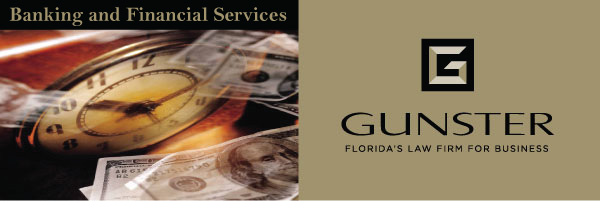 The Office of Foreign Assets Control (“OFAC”) has recently issued the Transnational Criminal Organizations Sanctions Regulations (“TCO Regulations”) to implement Executive Order 13581 of July 24, 2011, Blocking Property of Transnational Criminal Organizations (“Executive Order”).FinCEN will continue to accept submissions to its Bank Secrecy Act E-Filing System that use the most current “legacy” forms (i.e., the CTR, CTR by Casinos and industry-specific SARs) until the mandated use of the New Reports in 2013.
The Office of Foreign Assets Control (“OFAC”) has recently issued the Transnational Criminal Organizations Sanctions Regulations (“TCO Regulations”) to implement Executive Order 13581 of July 24, 2011, Blocking Property of Transnational Criminal Organizations (“Executive Order”).FinCEN will continue to accept submissions to its Bank Secrecy Act E-Filing System that use the most current “legacy” forms (i.e., the CTR, CTR by Casinos and industry-specific SARs) until the mandated use of the New Reports in 2013.
The TCO Regulations prohibit all transactions prohibited pursuant to the Executive Order. The Executive Order prohibits, among others, the transferring, paying, exporting, withdrawing or otherwise dealing in, property and interests in property that are in the United States, hereafter come within the United States or that are or hereafter come within the possession or control of any United States person, of any person determined by the Secretary of the Treasury in consultation with the Attorney General and the Secretary of State (hereinafter the “Blocked Persons”):
- To be a foreign person that constitutes a “significant transnational criminal organization”;
- To have materially assisted, sponsored or provided financial, material, or technological support for, or goods or services to or in support of, any person whose property or interests in property are blocked pursuant to the Executive Order; or
- To be owned or controlled by, or to have acted or purported to act for or on behalf of, directly or indirectly, any person whose property or interests in property are blocked pursuant to the Executive Order.
The term “Significant Transnational Criminal Organization” is defined as “a group of persons… that includes one or more foreign persons; that engages in an ongoing pattern of serious criminal activity involving the jurisdictions of at least two foreign states; and that threatens the national security, foreign policy or economy of the United States.” A “foreign person” includes any citizen or national of a foreign state or any entity organized under the laws of a foreign state or existing in a foreign state.
The TCO Regulations create a new category of blocked persons to be included in OFAC’s Specially Designated Nationals and Blocked Persons List (“SDN List”). The Blocked Persons will be found on the SDN List with the identifier “TCO.” Please note that property belonging to entities owned 50% or more by the Blocked Persons is also blocked regardless of whether the entity itself is listed on the SDN List.
The TCO Regulations were published in abbreviated form for the purpose of providing immediate guidance to the public. OFAC intends to supplement the TCO Regulations with a more comprehensive set of regulations, which may include additional interpretive and definitional guidance and additional general licenses and statements of policy.
To read a complete copy of the TCO Regulations please click this link.
|
This publication is for general information only.It is not legal advice, and legal counsel should be contacted before any action is taken which might be influenced by this publication. Established in 1925, Gunster Yoakley is one of Florida’s oldest and largest full-service law firms. Its substantial and diversified practice serves an extensive client base of international, national and local businesses, institutions, local governments and prominent individuals. The firm maintains a strong presence in Florida with offices in Fort Lauderdale, Miami, Palm Beach, Stuart, Vero Beach, West Palm Beach, Jacksonville, Tallahassee, and Tampa. Gunster Yoakley is home to more than 180 attorneys and 329 employees, providing counsel to clients through 18 practice groups including corporate, immigration, employment, technology and emerging companies, tax, banking and financial services, real estate, land use and environmental, business litigation, and private wealth services. |
